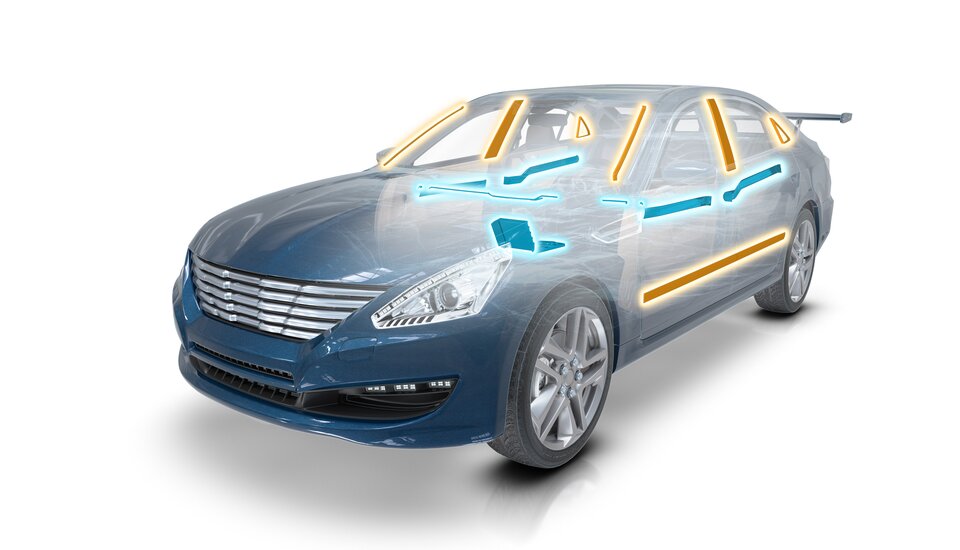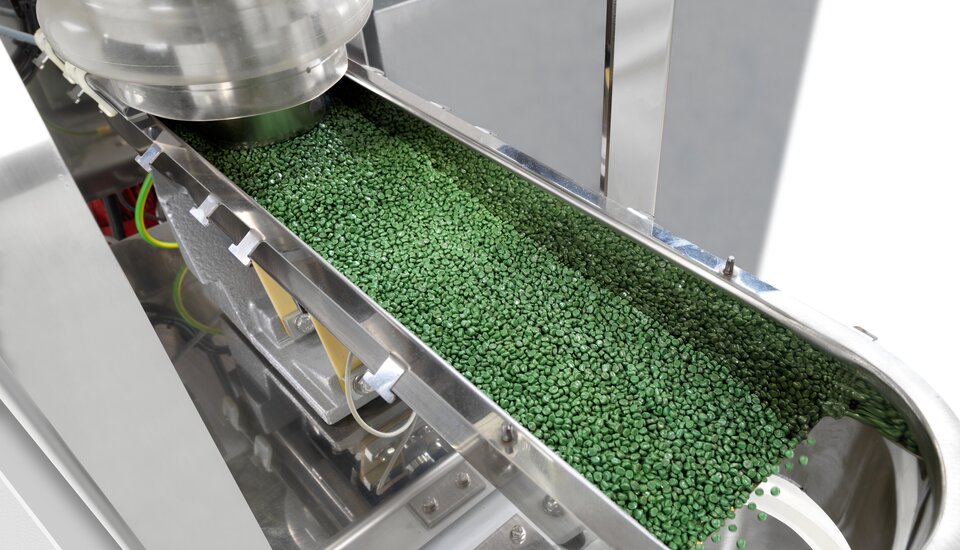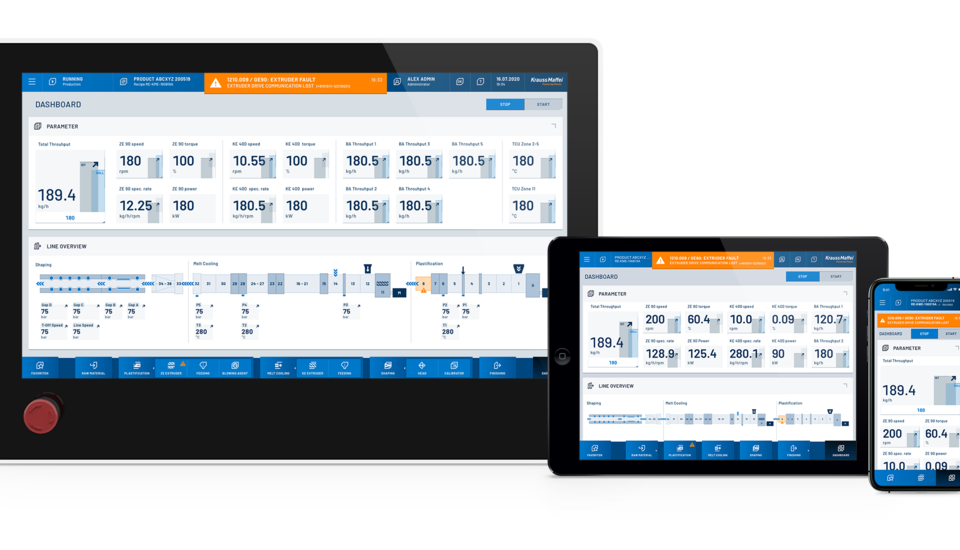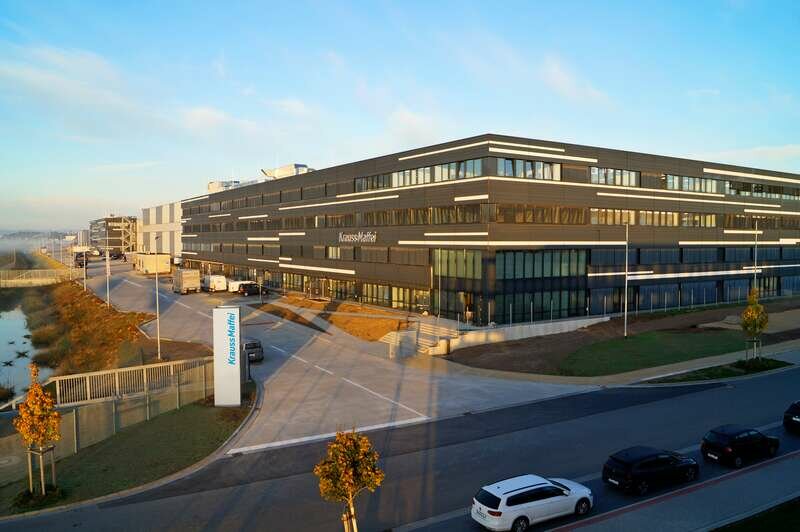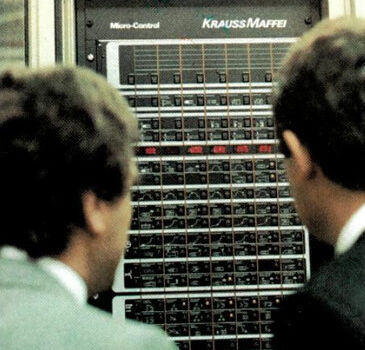
Trends & Markets
Process optimization for bioplastics
| Andreas Weseler
Dedication to research: Second ZE Basic at the IfBB
The Institute for Bioplastics and Biocomposites (IfBB) of the Hochschule Hannover – University of Applied Siences and Arts has been successfully collaborating with KraussMaffei Berstorff in knowledge and technology transfer for many years. Research fields include the development, processing and industrial use of plastics and composite materials made from renewable resources. As of recently, the new state-of-the-art machine hall at the university includes a second extruder from KraussMaffei Berstorff that can be used to reproduce all conventional processes.
The new technology hall of IfBB was introduced in mid-March in the Hanoverian district of Ahlem. “This technology hall strengthens our application-oriented research at Hochschule Hannover – and does so in an area that is highly relevant to the current megatrends,” said University President Dr. Josef von Helden at the opening. State-of-the-art machines for manufacturing and processing bioplastics and biocomposites make it possible to map and optimize the entire value chain, from the raw material to the customized material to the finished component.

Pleased about new research opportunities on the extruder ZE 42 Basic
Professor Dr.-Ing. (Doctor of Engineering) Hans Josef Endres, head of IfBB (second from left) and the team from KraussMaffei Berstorff
Basic research for cutting-edge mobility
Professor of Engineering Dr. Hans Josef Endres, playing multiple roles as Director of IfBB and of the Application Center for Wood Fiber Research (HOFZET) of the Braunschweig-based Fraunhofer Institute for Wood Research, Wilhelm Klauditz Institute (WKI), describes the direction the research is taking, saying “With cutting-edge mobility in mind, we want to develop resource-efficient components from hybrid lightweight construction materials. We want to take the high-load-bearing, yet ecologically problematic, carbon fibers and position them only at the parts of the components that endure high stress. In all other areas of the component, weʼre replacing these fibers with environmentally beneficial natural fibers.” He adds, “I am very excited about the new opportunities for bringing the research operations at Hochschule Hannover to a higher level in terms of technology.”
Win-win situation
KraussMaffei Berstorff has been working as part of a collaborating partnership with IfBB for years. The company is available to students at the university for both internships and practical accompaniment of their bachelor’s and master’s theses. “This is turning out to be a mutually beneficial situation, as the students and the company both benefit from the knowledge transfer equally. And both are able to establish valuable contacts for the future,” explains Dr. Thomas Winkelmann, Director of Plastics Technology Development at KraussMaffei Berstorff. According to Winkelmann, this also applies to the lectures through which the company supports hands-on training of the students in the “Extrusion Technology” concentration. Also represented in the state-of-the-art machine pool of the technology hall is KraussMaffei Berstorff – by a ZE42 Basic co-rotating twin-screw extruder. One of this machineʼs many purposes at the Hanover facility is to assist the operations for optimizing the processes for compounding bioplastics, including both highly filled compounds and biocomposites. It is connected to pelletizing systems for strand and underwater pelletizing.

Research in an industrial context
Two standard compounders from KraussMaffei Berstorff serve as the backbone of bioplastics research at IfBB in Hanover.
The ZE Basic twin-screw extruder has been tried and tested
The ZE Basic compounding extruder is a standardized quality product from KraussMaffei Berstorff that offers the ideal combination of innovation and stability. It represents high productivity, quality, reliability and cost-efficiency. Depending on the application, the ZE Basic series from KraussMaffei Berstorff can be equipped with various screw and cylinder elements. These elements complement each other in terms of function and thus handle not only the standard compounding tasks, but also the special requirements involved in compounding bioplastics and composite materials made from renewable resources. Last but not least concerning these properties, IfBB has already been working with a smaller twin-screw extruder from KraussMaffei Berstorff over the past several years. The ZE34 is used for adding dyes, processing agents or stabilizers to bioplastics. It also handles the integration of strengthening components (such as natural or glass fibers), fillers (e.g., talc or residual organic materials) or recycling products such as pyrolysis coals or powdery regrind. Specific material developments and the manufacturing of specific plastic mixtures round out the spectrum of functions.
Initial successes
At this point, plastic materials for real-world industrial products have already been created, including computer mouses, toothbrushes, inner door panels for the automotive industry or ballpoint pens. As University President Josef von Helden said of the technology hall, “The transfer of scientific knowledge into real-world applications is a particularly important factor in strengthening society and the economy in Germany.”
ZE42 Basic (front)
- Type: Co-rotating twin-screw extruders
- Throughput range: 100–440 kg/h
- Drive power: 106 kW
- Torque: 2×425 Nm
- Screw diameter: 42 mm
- Length: 46 D
- Flight depth: 7.6 mm
- Max. screw speed: 1,200 rpm
- Modular screw and process structure
- Metering: eight gravimetric solids dosing units and one liquid dosing unit
- Pelletizing system: strand and underwater pelletizer
ZE34 Basic (rear)
- Type: Co-rotating twin-screw extruders
- Throughput range: 50–230 kg/h
- Drive power: 54 kW
- Torque: 2×215 Nm
- Screw diameter: 34 mm
- Length: 46 D
- Flight depth: 6.1 mm
- Max. screw speed: 1,200 rpm
- Modular screw and process structure
- Metering: eight gravimetric solids dosing units and one liquid dosing unit
- Pelletizing system: strand and underwater pelletizer
Your contact
thomas.winkelmann@kraussmaffei.com
